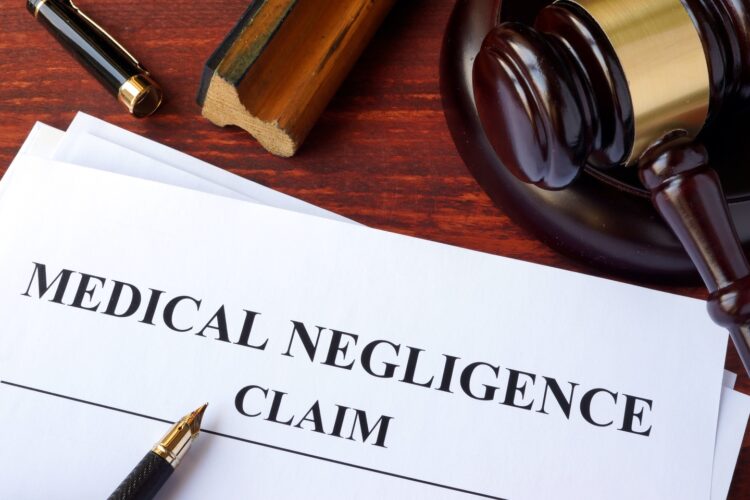Medical negligence claims arise when a healthcare professional fails to provide an acceptable standard of care, resulting in harm or injury to a patient. These cases can be complex and emotionally challenging for the individuals involved. Fortunately, seeking compensation for medical negligence is possible with the help of a skilled solicitor.
Understanding the Role of a Solicitor in Medical Negligence Claims
A solicitor specializing in medical negligence claims acts as a guide and advocate for clients throughout the legal process. Their primary objective is to secure compensation for the harm suffered due to medical negligence. To accomplish this, firms employ their legal expertise, experience, and resources to build a compelling case on behalf of their clients.
Lawyers play a crucial role in assessing the viability of a claim, weighing the strengths and weaknesses, and advising clients on the potential outcomes. They conduct a thorough investigation to determine if there is a viable case of negligence.
Evaluating the Viability of a Medical Negligence Claim
The first step for a lawyer in a medical negligence claim is to evaluate the viability of the case. They meticulously examine the details provided by the client, scrutinizing medical records and seeking expert opinions to determine whether the healthcare professional’s actions breached the duty of care owed to the patient.
They assess whether the negligence directly caused harm or injury, and if the harm suffered is significant enough to warrant pursuing legal action.
Solicitors employ their knowledge of medical standards, legal precedents, and case law to make an informed assessment. If the claim is deemed viable, they proceed with gathering and analyzing the necessary medical evidence to support their case. However, if the claim is unlikely to succeed, the lawyer advises the client accordingly, ensuring transparency and managing expectations from the outset.

Gathering and Analyzing Evidence
In a medical negligence claim, gathering and analyzing evidence is a critical aspect of building a strong case. Solicitors work closely with their clients to obtain medical records, test results, and other relevant documentation that may substantiate the claim.
They engage the expertise of professionals, such as independent medical experts, to evaluate the quality of care provided and to establish a causal link between the healthcare professional’s negligence and the harm suffered.
Solicitors use their understanding of medical terminology and procedures to interpret complex reports and identify any deviations from acceptable standards of care. This comprehensive analysis of medical evidence strengthens the case and helps establish liability. Additionally, lawyers may also collect witness statements, interview relevant individuals, and gather any other evidence that may support the claim.
Liaising with Medical Experts and Witnesses
In medical negligence claims, solicitors frequently collaborate with experts and witnesses to bolster their cases. They consult with experts from various medical disciplines to obtain professional opinions on the quality of care provided and the causation of the harm suffered.
These experts play a pivotal role in establishing a breach of duty and connecting the negligence to the patient’s injuries. Solicitors coordinate with these experts, providing them with the necessary documentation and information to ensure a thorough assessment.
Furthermore, solicitors may also gather witness statements from individuals who were present during the negligent incident or have relevant information regarding the patient’s condition and subsequent harm. By engaging medical experts and witnesses, solicitors enhance the credibility of their cases and increase the likelihood of a successful outcome for their clients.

Negotiating with Insurance Companies and Defendants
Once the solicitor has gathered the necessary evidence and built a strong case, they enter the negotiation phase. In medical negligence claims, this often involves dealing with insurance companies and the legal representatives of the defendants.
Solicitors use their negotiation skills and legal acumen to advocate for their client’s rights and secure fair compensation. They engage in settlement discussions, presenting the evidence and arguments that demonstrate the extent of the harm suffered and the financial losses incurred. Solicitors aim to reach a favorable settlement that adequately compensates their clients without the need for protracted litigation.
However, if a fair settlement cannot be reached, solicitors are prepared to proceed to court and represent their clients in legal proceedings.
Legal Proceedings and Court Representation
In cases where a settlement cannot be achieved through negotiation, solicitors provide invaluable representation in court. They handle all aspects of the legal proceedings, including drafting legal documents, preparing witness statements, and presenting the case before a judge and jury.
Lawyers use their courtroom expertise to effectively advocate for their clients, presenting the evidence in a compelling manner and countering any arguments put forth by the defense.
They skillfully navigate complex legal procedures and ensure that their client’s rights are protected throughout the trial. Solicitors strive to present a strong and persuasive case, maximizing the chances of a favorable verdict and securing the compensation their clients deserve.

Managing Timelines and Deadlines in Medical Negligence Claims
Medical negligence claims involve strict timelines and deadlines that must be adhered to for the case to proceed smoothly. Solicitors play a vital role in managing these timelines, ensuring that all necessary steps are taken within the prescribed periods.
They guide their clients through the legal process, providing clear instructions on what documents need to be submitted, when they are due, and what actions need to be taken at each stage. Solicitors understand the importance of meeting deadlines, as failure to do so may result in the claim being dismissed or delayed.
By effectively managing timelines and deadlines, solicitors ensure that their clients’ cases progress efficiently and minimize unnecessary delays.
Conclusion
In conclusion, making a successful medical negligence claim is anything but straightforward. It can often be a lengthy and complex process with many variables to consider.
If you feel you have been the victim of medical negligence then it is highly recommended that you seek legal advice from an experienced solicitor who will guide you through the process and ensure your rights are respected at all times.
The right solicitor should be able to provide invaluable assistance in helping you understand your options and find a resolution that works best for your situation.
 Hi Boox Popular Magazine 2024
Hi Boox Popular Magazine 2024



